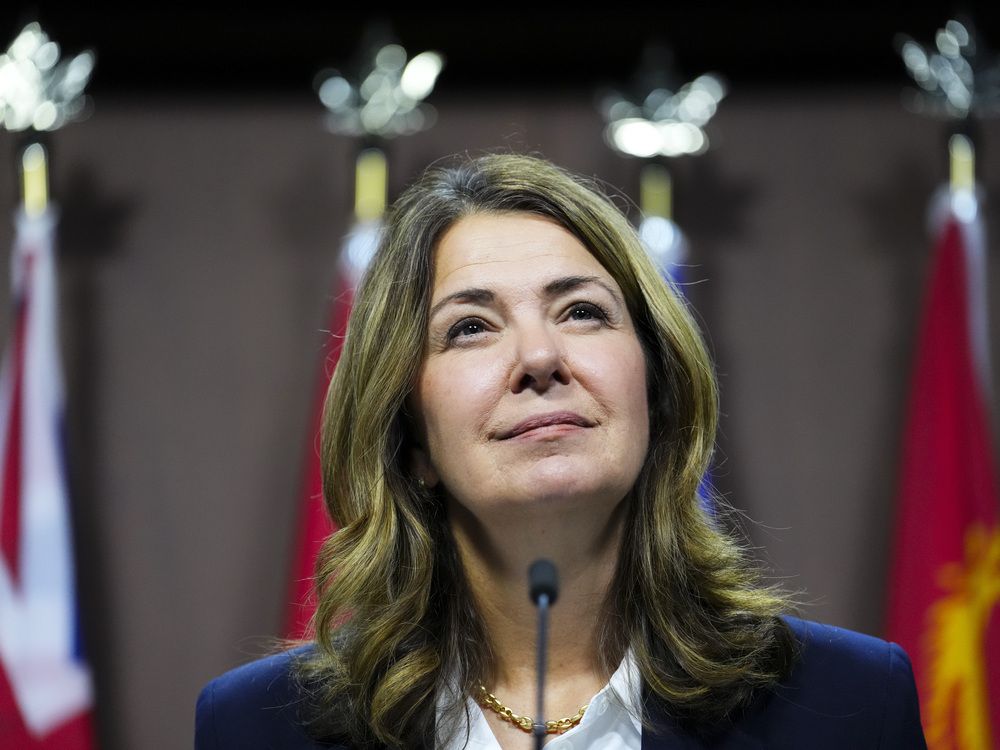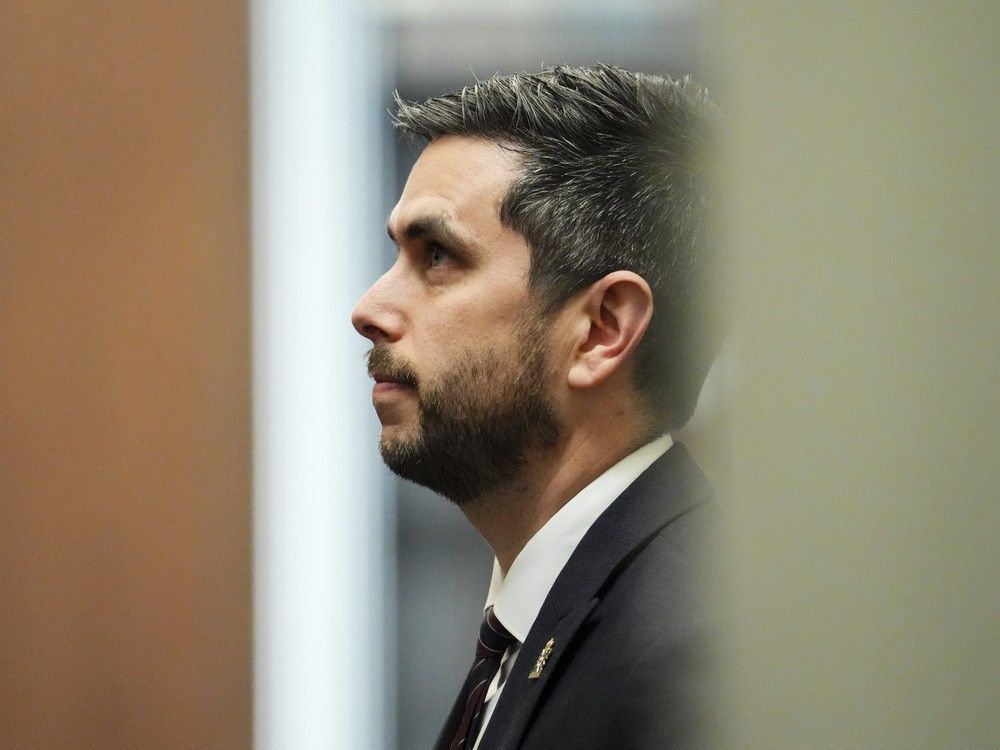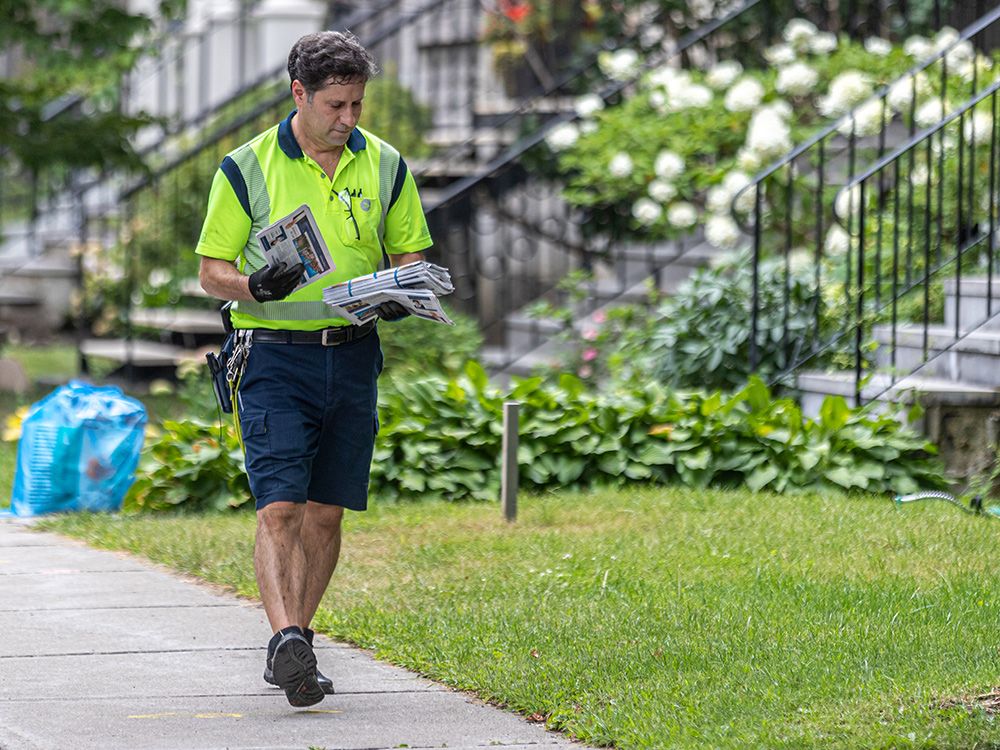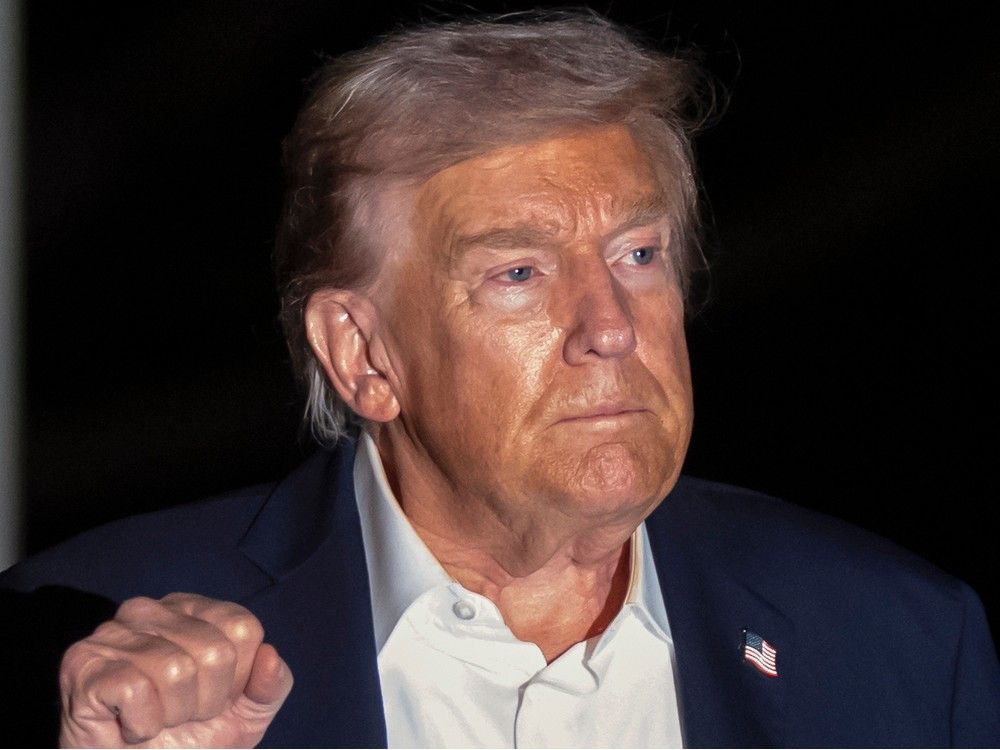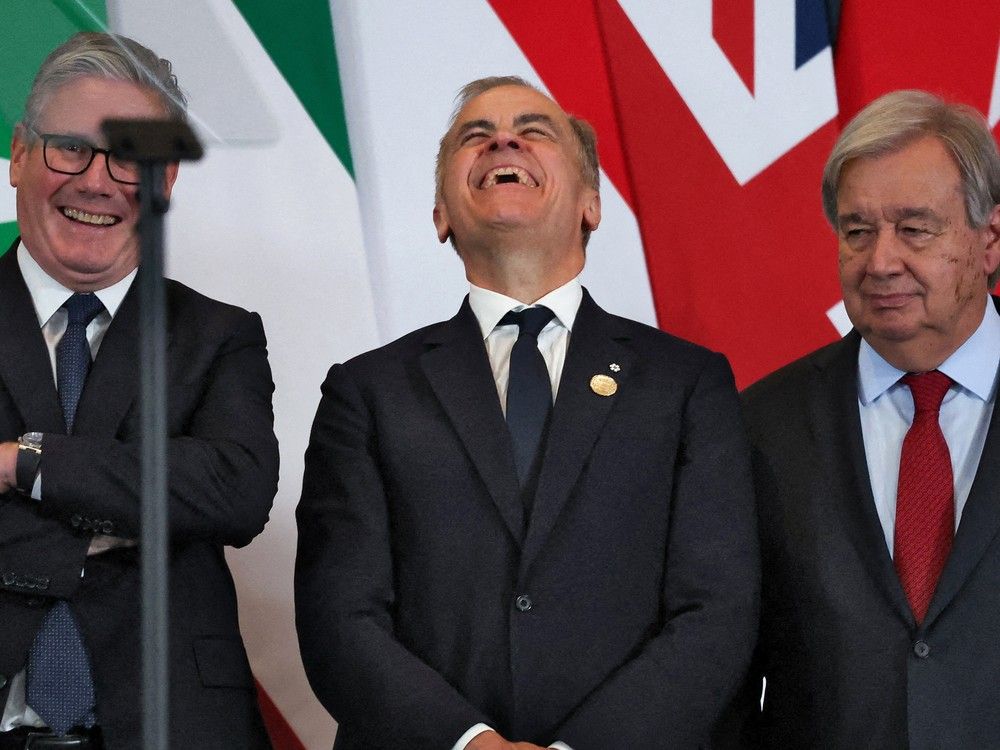
When five young drug mules, four of them Canadians and one an American, landed in Australia three days before Christmas in 2015, they weren’t whisked through customs by a corrupt border agent, as they had been promised. Nor were the bricks of cocaine in their Samsonite suitcases undetectable by border technology, as they had also been told.
Instead, their luggage was searched and border guards easily found the cocaine, valued at more than $22 million, by tugging on a false bottom built into each suitcase by members of a Mexican drug cartel.
When police officers searched the mules’ phones they found astonishing evidence — amateurish, deeply incriminating details mapping a transnational cocaine network in Canada through text messages, emails, group chats, even secret recordings made by one mule of his training for his new job as a cocaine courier in a supposedly foolproof plot.
This bust went on to become one of Canada’s most talked about drug cases, largely because of the unexpected status of the man revealed to be recruiting the interns, musicians and models as drug mules: a high-profile editor with Vice, the swaggering, attention-snatching media empire.
While the role of Yaroslav Pastukhov, better known by his pen name Slava Pastuk, gobbled up headlines, the official record of the case is littered with phrases such as “unknown third parties,” “unidentified people” and “others, known and unknown,” although little effort seems to have been made to hold them to account.
What the mules’ rich cellphone data detailed, courts in Australia and Canada later found, was that while Pastukhov was the driver of recruitment — prowling his newsroom, reaching out to music industry contacts and luring them with a free trip to Australia — there was another man helping him, his “deputy,” who also had worked at Vice.
Ali Lalji has been overlooked in the case from the beginning, always eclipsed by the outsized personality and public position of his co-accused.
Lalji also reacted to the scandal in a thoroughly different way. His wealthy family hired blue-chip lawyers, he pleaded not guilty, and his court hearings were pushed back and mired in pretrial motions. By the time Lalji’s case made it to trial, it had been lost in the panic of COVID, with closed courthouses, virtual trials and new public priorities.
This story is the first news account that Lalji has even faced trial, let alone that he was convicted and sentenced and is now appealing those judgments, all while out of jail on bail, maintaining his innocence and disputing the evidence used to convict him.
While Pastukhov — like each of the mules arrested in Australia — has been found guilty, sentenced to prison, done time, and released on parole, Lalji, who was arrested on the same day for the same crime in January 2019, hasn’t seen a day in prison since his release on bail a week after his arrest.
* * *
The cocaine plot was revealed in an
investigative feature by National Post
in February 2017. We exposed Pastukhov’s abuse of his position at Vice’s Toronto headquarters to recruit and organize smugglers for a Mexican drug cartel, including the five mules who were arrested.
Our story, before any known criminal investigation of the ring was underway in Canada, fuelled an international conversation about
Vice
and its journalistic place and practices.
Vice’s rise from a shoestring alternative magazine in Montreal in the 1990s to a New York-based multi-billion-dollar digital media and broadcasting empire made our scoop more than an improbable true-crime tale. The backdrop of “the hipster bible” gave our story a far broader appeal, seen as an allegory for Vice itself and part of a reckoning that was coming as Vice subsequently withered from sky-high investment valuations to filing for bankruptcy protection in 2023. After its
fire sale to a hedge fund
, Vice continues to publish but also to struggle.
Attention to our story was intense, sparking U.S. magazine features, competing movie pitches, a book, a podcast series, ferocious online discussions, biting memes and stories around the world.
As the face of the scandal, Pastukhov legally changed his name and fled Toronto for Montreal.
Three months after our story was published the RCMP launched Project OSockeye to investigate the ring, and several months after that, RCMP officers flew to Australia to speak with two of the imprisoned mules.
On Jan. 31, 2019, RCMP officers arrested Pastukhov in Montreal and Lalji in Toronto, charging both men with conspiracy to import cocaine into Australia. Pastukhov was 28 years old and Lalji was 30.
Lalji’s name on arrest documents was a surprise. During our reporting on the drug mule recruitment, among the dozens of people interviewed, Ali Lalji’s name hardly came up.
Pastukhov’s job was public facing. He appeared in Vice videos and had his name published on his stories. His hot takes were often controversial, and his edgy image aligned with the Vice brand. Lalji, however, worked in advertising, away from the reading and viewing public.
Even the RCMP made Lalji second fiddle, ignoring him in their headline on their
2019 news release
: “RCMP arrest a former journalist for conspiring to export cocaine to Australia.” The last line of most news reports on the arrests was that someone named Ali Lalji was “also in custody.”
This imbalance bothered Pastukhov. “They made it seem like I was the only guy responsible for it,” Pastukhov complained to writer Kate Knibbs in December 2019, during an interview for her
story in The Ringer magazine
.
In Pastukhov’s co-authored memoir, called
Bad Trips
, drafted while in prison and published in 2022, he returned to Lalji getting an easier ride: “Ali, despite being my co-accused, spared himself from the public eye because by the time we’d been arrested the narrative about me being the lone facilitator for these trips had spilled so far out of the bottle that adding a new character would have made a mess of the original reporting.”
Pastukhov’s writing displays a skill for observation. His descriptions can be both cutting and spot on, but he might have been too preoccupied with his own misery to see what was really happening, the tack and tactics setting the two apart.
At their first court appearance after their arrests, Pastukhov was advised by duty counsel, a free lawyer on hand in court provided by Legal Aid Ontario; Lalji’s family had hired Greenspan Humphrey Makepeace LLP, renowned for high-profile wealthy clients, including Justin Bieber, Frank Stronach, Peter Nygard, Kevin O’Leary, and the family of murdered billionaires Barry and Honey Sherman.
For Lalji’s and Pastukhov’s joint bail hearing a week later, Jill Makepeace, a partner with that firm, spoke on Lalji’s behalf. Pastukhov was represented by Steve Lyons, who took a break from a hockey career — the highlight being three games in the NHL — to go to law school.
Both lawyers got their clients bail that day. Between the pair, bail was set at a million dollars. Lalji’s bail accounted for $750,000 of that, reflecting their families’ relative means.
When Lalji and Pastukhov were released from custody into the majestic atrium of Toronto’s Old City Hall Courthouse, Pastukhov, the only child of a single mom who immigrated from Ukraine, stormed away clutching his mother by her waist, at least partly to hold her back from National Post reporters who had outed her son.
When Lalji emerged, he was embraced by a swarm of family. His father, in a refined accent, asked reporters to show understanding for his son while his mother tearfully implored us to be kind, and then Lalji politely declined to comment, promising he would speak at a more appropriate time.
“I hope you understand,” Lalji said in a soft voice.
* * *
Ali Lalji was born in Pakistan — a twin to a sister — in August 1988, and moved with his family to Africa before his first birthday. That was only the start of his world travels.
His father, Nadir Lalji, had graduated from university in Montreal and then joined his family’s food wholesale business in Kinshasa, the sprawling capital of the Democratic Republic of Congo. In the 1990s, after the fall of the Berlin Wall, Nadir Lalji saw business opportunities in eastern Europe and moved the family to Budapest. At its peak, his casual wear firm had 110 employees in 18 countries. Nadir Lalji later said, “I speak nine languages, have travelled every continent except Australia.” Ali Lalji’s mother, Tasleem Lalji, finished university and stayed home to raise the twins and their younger brother.
From the age of 13 until he was 16, Ali Lalji attended a British private boarding school, Mill Hill School, known more for its imposing tuition fees than its academic standards compared to other elite British schools. But it allowed Lalji to learn while surrounded by children of wealth. He then completed high school back in Hungary.
He was 18 when the family returned to Canada. He attended the Toronto Film School and then moved to India to work in the film industry before coming back to Toronto in 2009 and enrolling in business administration and marketing at what was then called Ryerson University.
Lalji worked as a marketing assistant for real estate agents until he landed a job at Vice in 2012 as an advertising account manager. It must have seemed a dream job, at that time, when everyone of a certain age with certain interests wanted to be a part of Vice. For a time, Vice was seen as the future of media, the key to unlocking millennial eyeballs. Lalji worked on ad campaigns for companies desperate to reach that demographic, including Molson Coors and Pfizer.
Later, shortly before his arrest, Lalji became creative director of brand strategy with Supreme Cannabis Company, a firm run by a close family friend. By his own account, he had vast personal experience.
Although Lalji’s time at Vice was brief it was consequential. It is where he met Pastukhov.
Both men were hired at Vice around the same time and Lalji became one of the few friends Pastukhov had at the office. They bonded over storytelling, drinking, music and drugs. Pastukhov admired Lalji for his hustle, always foraging for business ideas.
Lalji is described by Pastukhov in his book as a “debonair Pakistani salesman” and a “posh kid” who was “full of stories from his time spent living abroad in exotic locales with his well-to-do family.
“In some ways he underachieved by using his elite education, international connections, and the top-level mentorship of his successful businessman father to become a junior salesman at an ad agency, but that slacker energy just added to his effusive charm,” Pastukhov wrote.
“Ali and I brought out the worst in each other.”
Lalji, in court, blamed the influence of partying with people he met at Vice for contributing to his descent, while Pastukhov, in his book, pins his involvement on Lalji, writing: “Did I blame my friend and co-worker Ali … for introducing the masterminds of this scheme to my life? If not for him going to Australia first, I’d never have thought taking my own trip would be a foolproof scenario to suggest to others.”
Wherever the truth lies, courts in two countries at several trials have accepted as fact what happened next. Lalji’s proceedings add new information and lush details on how the cocaine plot evolved and how it crumbled. In whatever way the caper began, the downfall, courts concluded, can be traced to the fusion of three men who all worked at Vice.
* * *
By the time cocaine smuggling was being plotted, Ali Lalji had left Vice for a similar job at Blue Ant Media, during which he broke up with a long-term girlfriend. He later told court, in a report submitted by his lawyers, he filled the void by spending time with pals from Vice, which meant parties, booze, drugs, and more drugs.
It was a downward spiral. Barely a year after starting at Blue Ant he was fired for failures in personal responsibilities, court later heard. He then had a short stint with the CBC.
Both Pastukhov and Lalji each took separate smuggling trips of their own to Australia before recruiting others to do it, according to court decisions, although neither was charged for personally smuggling drugs. Pastukhov bragged of their clean getaway when recruiting other mules, for which there was a promised referral fee for each new courier.
In our original investigation, we spoke
with six people
, primarily young journalists working for Vice, who said Pastukhov tried to get them to agree to go on a smuggling run, but they declined.
Someone who said yes was Robert Wang.
Wang, 23 at the time, started at Vice as an intern in the summer of 2015. Wang hoped Pastukhov would help him break into the music industry, but Pastukhov made a different pitch to him by text. They messaged back and forth before Pastukhov invited him to come to his apartment to talk in person. Wang must have been suspicious of how things might go because he secretly recorded his meetings.
The recordings were later used by investigators in Australia to prosecute the mules, by the RCMP in Project OSockeye to charge Pastukhov and Lalji, and later played in court. Pastukhov called the first meeting “the sales pitch.” Lalji participated in at least one of them, court heard.
On the recordings Pastukhov gushes about being a cartel mule. He tells Wang the cartel has “people on the inside” at airports in Los Angeles and Sydney.
The job, Wang is told, is to fly from Toronto to Las Vegas to collect doctored suitcases from one branch of the cartel, then fly to Los Angeles for a connection to Sydney, Australia, where the suitcases are delivered to another branch.
“I did it and I’m like, this was … it’s one of those things that’s so easy I, like, wish I had thought of it … Me and Ali looked at the bags, like, there’s no, it’s not like a Ziploc bag that’s just, like, dropped in between … The only way you can get to it is if you drill through it … And that goes for customs officers, too.”
“And they can’t sniff it or nothing?” Wang asks.
“They can’t sniff it. They can’t X-ray it.”
“Wait, did you go with Ali?”
“No, I went with Pope … and Ali went with a girl.”
“And you guys met up there, same time?”
“He went, came back, then I went … We just did two trips.”
Once a mule agrees to go, they send a photo of their passport and flights are arranged, Wang is told. He asks what happens if a mule changes their mind.
“You work with cartels, pretty much,” Pastukhov answers. “My kneecaps don’t get broken by the Mexican cartel if I don’t take the trip. They get broken by the guys from B.C. It’s a bunch of guys that went to McGill together and have figured all this shit out,” he says of purported bosses.
The next morning, Pastukhov texted Wang: “Any passport pics?”
“Sorry bro. Thought about it a lot, just not a step that makes sense for me to take atm,” Wang wrote, using a shorthand for at the moment. “Appreciate you letting me know about the opportunity still, I’ll keep it private. Hope we can still do business in the future.”
Pastukhov didn’t reply. Lalji did, according to phone data filed in court.
“Yo it’s Ali from yesterday. U got a chance to talk today? Slava told me you guys talked but I think I have an opportunity to sweeten this deal for you,” Lalji allegedly texted. Wang told court in Australia that after a phone call from Lalji had convinced him to go, Lalji texted him again: “You just made my day fam.”
“Haha ya. We’ll talk later tonight,” Wang replied. “What’s your last name btw fam? For my phone records.”
“Ali Lalji,” came the reply. “Follow me on Insta lol.”
According to Wang, he later got things rolling by reaching out to Lalji. “Just met with Slava at Vice. Let me know when you want to start the paperwork.” Phone records show a reply within seconds, saying Wang’s travel needed to be locked in and that Lalji would buy the airline tickets.
Pastukhov next texted Wang saying he’d found a travelling companion for him. Her name was Porscha Wade, an aspiring model from Toronto who had just turned 19. “I don’t wanna get ur hopes up but an international model,” Pastukhov told Wang. “She’s so fine … I’m jealous.”
“Haha hope she’s single then,” Wang replied.
Despite professed admiration, they treated her like crap.
“How long does the girl want to go for,” Wang asked when they were discussing travel dates. “She doesn’t have a say lol,” Lalji allegedly replied. When Wang was collecting $2,000 in spending money for himself and Wade for their trip, Pastukhov said Wang should “finesse” it so she thinks the spending money is her payment, then Wang and Pastukhov could split her muling payment.
As their departure drew close, Wang recorded a second meeting, this one a detailed mission briefing.
“We’re gonna get a group (chat) going with the four of us — you, me, Porscha, Ali … we’re going to be in contact throughout,” Pastukhov can be heard saying.
Wang and Wade were told other mules were on the same flight and if they recognized anyone to act like they didn’t know them.
“You’re on a flight with six other people doing this,” Pastukhov says. They then talk of attractions in Australia. “I saw a koala bear, I saw kangaroos … all that nice shit,” someone says.
Also filed in court is an email chain police found on Wang’s phone. It is the flight ticket information and itinerary for Wang and Wade sent from the travel agent to Lalji, forwarded to Pastukhov, who forwarded it to Wang.
Pastukhov started a group chat on WhatsApp, an encrypted phone messaging app, on Dec. 15, 2015. He included four phone numbers. The numbers were for himself, Wang, Wade and Lalji, according to phone data filed in court. He called the group “Oz”. Ten minutes later he reconsidered the name and changed it.
Two days later he sent a message to the group: “Everyone good?” Both Wang and Wade said they were almost ready to go. A few hours later, Wang told the group they were on their way to the airport.
“Kk u gonna hit traffic but should be okay,” Lalji texted, according to court documents. “Hit us up when you checked in.”
An hour later Pastukhov asked for an update.
“Just checked in,” Wang said.
“Amazing, smooth sailing aheah” Lalji allegedly replied with autocorrect letting him down. Three seconds later came the correction: “Ahead.”
Pastukhov then typed fateful words: “Enjoy Australia. You won’t be back for a while.”
For the rest of their trip, the group chat was consumed by the minutia of smuggling. When Wang had a problem prearranging a car to pick them up at Sydney airport, according to court documents Lalji said he would take care of it and ended the chat with a pressing concern: “And clean phones everyone.”
They didn’t.
While planning his trip, Wang typed notes on his phone, including a list of what he’d like to see. In Vegas, it was the famous strip and the Mob Museum. In Australia, it included an art gallery, shopping, and the Bondi to Coogee coastal beach walk.
Jordan Gardner, a 25-year-old musician and Pastukhov’s roommate, along with Nate Carty, a 21-year-old American model in New York, had also been recruited as mules for the trip. Gardner and Carty had trouble finding each other at the airport. They went to different terminals and then different gates, and each would move to where the other had been. Pastukhov texted Gardner asking if he had found Carty. “He’s a bucket, I told him to stay put and I’ll find him,” Gardner said. “He’s so dumb,” Pastukhov replied.
The plot ran into much deeper trouble almost immediately. Plans had been made for six mules to fly to Sydney in three groups of two: Wang and Wade, Gardner and Carty, and two other men.
Kutiba Senusi, a 22-year-old Montreal events planner, was one of the last pair of mules. Senusi and his companion had been recruited by a different member of the ring, a man in Montreal, court in Australia was told. When the two men tried to board the flight to Vegas at Toronto airport, Senusi’s pal was denied entry to the United States because he had a criminal record and wasn’t allowed on the plane.
This put Senusi in a bind. He made inquiries and was told that a mule had once backed out, but they were tortured with razorblades under their fingernails, Senusi told court in Australia. He travelled to Vegas alone.
While being stopped at the U.S. border saved one would-be mule a lot of grief, for the rest it caused a ton of trouble. There were now five couriers when the cartel had assembled suitcases for six. The plan had been for each mule to take two cases, and the cartel was clear: All cases must go.
Senusi agreed to take one of the extra bags and the other was foisted on Wade.
Evidence at various trials told of the mules landing in Vegas and each pair going to a different hotel. One mule from each couple contacted someone in Vegas to arrange for delivery of the special luggage. When the cartel’s guy arrived, a mule identified themselves by handing over a one-dollar bill bearing a serial number they previously sent them. Only then were the suitcases with cocaine bricks in the lining handed over.
Gardner said at his trial that when he went to meet the Vegas contact outside his hotel, he told the guy he was backing out. In reply, the man pulled a gun from under his car seat. Holding the gun in one hand, the man put his other hand on Gardner’s shoulder. Gardner returned to his room with the luggage.
The mules packed their belongings into the new cases, ditched their old bags, and went to the airport for the short flight to Los Angeles before their long haul to Sydney.
Pastukhov claims the extra baggage doomed them all.
By his account, instead of redistributing the suitcases in private at a hotel, Wang and Wade met with Senusi at the Vegas airport. The handoff was spotted by airport security and the three of them were quietly flagged as suspicious. It didn’t take much for officials to identify the others. Pastukhov says authorities saw Wade and Carty talking while waiting for their flight, linking them to the rest.
When the five mules were caught and arrested at Sydney airport, Wang was carrying cases with about six kilos of cocaine hidden inside. Gardner was carrying almost seven kilos, and Carty six and a half. Senusi, with an extra case, was found with nine kilos. Wade, the only woman among them, had been given 11 kilos of coke to haul.
The value of it all, court was told, was $22,669,280. What made their crime particularly onerous was the amount they carried. Two kilos is the weight that triggers the definition of “commercial quantity” under Australia’s laws, making the potential penalty life in prison.
By the time Lalji was preparing for his trial in Canada, the mules in Australia had all been convicted. At Wang’s trial in Sydney, the judge found that Lalji was present and involved in at least one of the recorded meetings, and that Lalji warned Wang of possible repercussions if he backed out, but deemed it not to be a direct threat of physical violence. Lalji was not charged in Australia and did not testify at any of the trials there.
Gardner and Senusi were sentenced to seven and a half years in prison; Wang to six and a half years; Carty to five and a half; and Wade to six years and nine months. All have served their time and been released.
Gardner picked up his music career where he abruptly left it and is again performing and releasing new music; this year, his duo, Èbony, was
nominated for a JUNO award
for Electronic Album of the Year. Senusi changed his name and started his own digital branding and advertising firm. Carty returned his 6-foot-2 frame and high cheekbones to
professional modelling
and got married in August. Wade was rejuvenating her modelling career when she returned from Australia. Wang also went back to a job he loved, in music artist management, where he finds success under a different name.
* * *
In his book, Pastukhov shared his assessment of his chances of winning if he fought his charge in court: “Ali and I had met with Rob (Wang) alone at my apartment before his trip and ran down the whole thing to him, what he was supposed to do and how it all was supposed to go. He had recorded the whole thing. Between that and all the text messages they had there was zero chance either one of us would beat the charges.”
He discussed it with his mother and together they “walked into my lawyer’s office and told him the plan. Expedite the process. I’d be pleading guilty.”
Pastukhov did plead guilty that September and was sentenced on Dec. 3, 2019, to nine years. His case wrapped up — from arrest to sentencing — within the same calendar year, almost four years after sending the mules to Australia.
It seemed then that the cocaine caper might conclude quickly — both Lalji and Pastukhov faced the same charge and similar evidence.
Lalji, however, did not follow his co-accused’s lead.
Instead, on the same day that Pastukhov entered his guilty plea, Lalji changed lawyers.
Lalji switched to a scrappy drug defence specialist, Deepak Paradkar, a veteran lawyer who attracted clients with his brash (now defunct) Instagram account @Cocaine_lawyer, where he posted photos of clients being freed from drug charges along with his mantra: “Trials are war — choose a general.” Lalji’s arsenal grew considerably when Paradkar was joined by Ravin Pillay, a meticulous trial lawyer who a few years before had defended serial killer
Dellen Millard
for the murder of Tim Bosma.
Lalji’s criminal case moved slowly during the pandemic as courthouses closed and hearings moved online. A virtual hearing in February 2021, attended by the Post, revealed how much more difficult Paradkar and Pillay were making the prosecution of their client than Pastukhov had contemplated.
Lalji’s lawyers made pretrial motions to exclude the evidence collected by Australian police, including the data extracted from the mules’ phones. They launched a constitutional challenge arguing the Mutual Legal Assistance Treaty — which allows evidence from Australian authorities to become evidence in courts in Canada — violated the Charter of Rights and Freedoms.
Crown prosecutors had lined up evidence from 53 officials in Australia and Lalji’s lawyers argued they had the right to cross-examine every one of them before their evidence should be accepted in court. Bringing them all to Canada would be difficult and costly at the best of times, but under COVID travel restrictions it would be impossible.
The judge agreed the treaty did violate Lalji’s rights, so the Crown asked that Australian witnesses be allowed to testify through a video link, which the judge allowed. The 14-hour time difference between Toronto and Sydney made it awkward, so arrangements were made for officials in Australia to testify from their homes at night.
Instead of using the phone data extractions of Australian police, the mules’ phones were sent to Canada and the RCMP had to do their own extractions, finding the same data.
It seemed weighty evidence for sure, but trials can be funny things.
At Lalji’s trial, Crown prosecutors had to not only prove the existence of the conspiracy, they had to prove that Lalji was a member of it. The Crown also had to prove that Lalji knew the substance being imported was cocaine — not just any drug or any contraband but specifically cocaine — or was “wilfully blind” to that fact.
That could explain some of what happened at his trial.
Lalji’s trial finally was called to order in the Ontario court of justice on Jan. 22, 2021, with Justice Russell Silverstein presiding but no public scrutiny. The case was heard sporadically, with hearing dates scattered over months, stretching across nearly a year. There was one hearing day in February, the next in August, then six days in May, when most of the evidence was called, and a closing day for submissions on Nov. 1, 2022, exactly seven years after the day police alleged the Pastukhov-Lalji cocaine conspiracy started.
Pastukhov was called as a prosecution witness.
Prosecutors seemed to expect him to be their ace. At his own plea hearing a couple of years earlier, he had said that Lalji helped him organize and direct four of the five mules.
Much of Pastukhov’s testimony at Lalji’s trial, though, was full of holes, half-truths, and in stark contradiction with much of what he had previously said.
More than 50 times, Pastukhov’s answer to a question from Crown prosecutor Faiyaz Alibhai was a variation of “I can’t remember,” leading Alibhai to repeatedly ask the judge to declare him a “hostile witness,” which would have allowed Alibhai to challenge his testimony directly, in the style of a cross-examination. The judge refused.
When the secretly recorded audio was played at Lalji’s trial, Pastukhov said he recognized his own voice and agreed it was about arranging trips to Australia; he remembered the meeting took place at his Toronto apartment and that Wang was there — but not much else.
“Ali might’ve been there, I can’t remember who was in the conversation,” Pastukhov said on the stand. He couldn’t identify the voices, he told court. He couldn’t “remember anything from that time, I was consuming drugs while this was being recorded,” he testified.
His book, however, published just a month before his testimony, recounts the meetings in detail.
“To no one’s knowledge but his own, Rob Wang surreptitiously recorded that meeting on his cellphone. In that recording, Ali and I went over the details of his trip,” he wrote.
At Lalji’s trial, Pastukhov admitted to his own smuggling trip to Australia, but said he didn’t know what was in the suitcases.
“Honestly, we never knew, I never knew what was in the luggage,” he testified. He said he only found out it was cocaine when he read the prosecution’s disclosure. When asked on the stand what he thought was in them, he said: “Could’ve been nothing, could’ve been meth, I’m not sure, could’ve been guns.”
That is not what he said before Lalji’s trial.
After the National Post exposé, Pastukhov was interviewed by journalist Kasia Mychajlowycz for a podcast series called
Cool Mules
, published by Canadaland. In it Pastukhov says the suitcase he smuggled into Australia “was lined with what we assumed at the time was cocaine.”
And the opening line of his book is: “Wheeling the suitcase lined with eight kilograms of cocaine past the Australian customs agent was the biggest rush of my life …”
The very core of Pastukhov’s plea for mercy at his own trial was based on the premise that cocaine was the reason he got involved with the bosses of the ring in the first place — because he was really trying to land a big story for Vice about cocaine, he repeatedly said.
Testifying at Lalji’s trial, Pastukhov also said he didn’t know if Lalji made a smuggling trip, although he discusses such a trip in crystalline detail over 20 pages in his book. He claimed the smuggling plot started during a boozy meeting at Toronto’s Soho House club, where he and Lalji met with men who told them how it worked, from buying bulk cocaine from a South American cartel to getting it to drug-hungry Australia, and then recruited them both.
The night before Lalji allegedly left for Australia, Pastukhov wrote, they discussed it again over drinks.
“‘The risk is the best part,’ replied Ali between sips of his cocktail. ‘This is going to be the most gangster shit I’ve ever done,’” Pastukhov wrote. He claimed that Lalji sent him a text when he got to Australia — “I made it” — and that when Lalji got back he wore “an expression on his face that looked like he’d just robbed a bank, a smirk extending from within his soul and onto his mouth.” He writes of the two of them playing with a stack of money Lalji was paid. “Money was thrown at each other, flicked around, used as a fan, held up like a phone to our ears, and then thrown again.”
It seems the judge hadn’t read Pastukhov’s book, or the magazine article, or the Post’s coverage, or listened to the podcast, or scrolled through his social media, where he displays a sharp memory for people, places, things, sounds, even smells. When testifying, his memories evaporated.
After Pastukhov’s testimony, the judge described him as an “extremely reluctant witness,” and said his lack of memory wasn’t credible.
“His testimony was also rife with inconsistencies,” said Silverstein. “In one breath he said that he had indeed conspired with Mr. Lalji to import cocaine into Australia, and in another he denied it, and then professed not to recall.”
When Pastukhov was recently asked about this by the Post he didn’t dispute that his performance on the stand contradicted his previous accounts.
“You ask if I can shed light on what really happened, or whether memory, performance, or pressure shaped the contradictions,” he said in an email. “I could give you a long explanation about stress, trauma, or the structural problems in how these cases get prosecuted and reported — but honestly, none of that matters as much as this,” and then he pumped the investment potential of Pokémon cards.
Lalji’s lawyers called no witnesses at trial. Lalji didn’t testify.
His lawyers argued the Crown’s evidence was weak — “almost entirely” based on Pastukhov, along with “a body of circumstantial evidence.” They argued the RCMP’s extraction of the cellphone data was substandard. They complained that none of the mules were called to testify, especially Wang, the one who made the secret recordings.
After five days of trial evidence, Silverstein reserved his decision on Lalji’s guilt. It wasn’t until Jan. 27, 2023, that he announced his verdict.
“I find on all the evidence that Mr. Lalji was, in effect, Mr. Pastukhov’s deputy in Canada,” Silverstein ruled. “Their job was to recruit friends willing to fly to Las Vegas, meet other co-conspirators there, swap their suitcases for suitcases filled with cocaine and then travel on to Australia.” Silverstein also accepted Lalji made his own smuggling run “before graduating to a position of greater authority.”
Lalji was found guilty.
It took almost the rest of the year for court to reconvene again to hear sentencing submissions, in late September 2023. By then, almost three years had passed since Pastukhov was taken to prison.
Silverstein was told that Lalji was working at the cannabis company when he was arrested and stayed with the firm until 2022. In 2023, he co-founded a marketing agency for wine and cannabis.
Lalji said he volunteers by teaching jiu-jitsu to children at his local gym and piano to his nieces and nephews. He said he taught English online to school kids in Pakistan during the pandemic. He said he is a practising Muslim who attends his local mosque and is an avid musician, playing piano, drums and guitar.
The Instagram account for the Hitters Fight Club, a Toronto gym specializing in boxing and martial arts training,
shows Lalji
sparring in the combat sport of Muay Thai recently. He seems to be a regular there.
The Crown asked that Lalji be given a sentence of 11 years imprisonment. Lalji’s lawyers asked for six years.
Lalji handed the judge more than 30 letters supporting him. The letters included many family members in several countries, a mixed martial arts instructor, a business partner, people he has worked with, and longtime friends in Canada and abroad. There were two letters from former colleagues at Vice.
Another letter was submitted by his new girlfriend. She met Lalji through a dating app, she told the judge, and said that early in their relationship Lalji told her about his arrest and charges, partly to explain why he couldn’t leave his home — because of bail restrictions.
His mother, in her letter, told the judge: “The last four years of being on house arrest, I’ve watched Ali change from a carefree boy to a thoughtful young man. He is deeply remorseful for what he has put us through as a family … I hope you will see Ali for who he is. Not a hardened criminal but a dumb kid who will be haunted by this for the rest of his life.”
His father said of his son: “Ali is not a hard-core criminal. He doesn’t have a criminal mind. He was a kid who always tried to please the people around him … He is not dangerous to society.”
The judge took it all in, along with the evidence and the arguments from lawyers on both sides. He accepted Lalji’s strong support, talent and pro-social attributes.
“He was drawn to the world of hard drug and alcohol use with former colleagues when he lost a significant relationship. This contributed to loss of a job and loss of income. These factors led to him succumbing to the temptation of the quick money of drug smuggling,” Silverstein said when delivering his sentence.
“I believe he has great prospects for rehabilitation. He clearly regrets the poor decisions he made several years ago.”
Silverstein said the judicial principle of parity says Lalji’s sentence should be lighter than Pastukhov’s because Lalji played a less senior role in the plot, but that needed to be balanced by Pastukhov making an early guilty plea while Lalji fought at trial.
He sentenced Lalji to nine years, the same as Pastukhov. Silverstein deducted 14 days to compensate for Lalji’s week in pretrial custody, and another 500 days for his time under house arrest.
But Lalji still didn’t go to prison.
* * *
As soon as Lalji heard his sentence, his lawyers announced they were appealing both his conviction and his sentence and asked for his release on bail pending the appeals.
Bail was set at $1 million, and his mom and dad agreed to be sureties. His bail conditions included living at his parents’ Toronto-area condo, not leaving Canada, and only leaving Ontario if he’s with at least one of his parents. He had a curfew of 11 p.m. until 6 a.m., unless he’s with a parent. He was also ordered not to communicate with Pastukhov or any of the mules. He was not to possess or use unlawful drugs, and he promised to pursue his appeal “with due diligence.”
His bail release was to expire in six months. As that deadline approached, in late April 2024, Lalji’s bail was extended until October. When October came, it was extended until April 2025. When spring came, Lalji still had not completed the paperwork for his appeal and he remained out of prison on bail that was extended once again.
Pastukhov had been granted day parole from prison three years before Lalji’s lawyers filed their appeal factum with the Ontario Court of Appeal this summer. His appeal material is more than a thousand pages long.
In Lalji’s appeal of his conviction, Pillay argues many of the themes he failed to sway the trial judge on.
The recordings on Wang’s phone should not have been admitted as evidence, Pillay said, because there was no “proper authentication” of them. Pillay said Silverstein erred in his handling of Pastukhov’s evidence, which was crucial because “the entirety of the Crown case was circumstantial.” Pillay claimed the judge wrongly allowed hearsay evidence, misapplied the doctrine of wilful blindness, and that evidence proving a conspiracy was not for the same conspiracy that Lalji was charged for.
“The Appellant submits that these errors considered individually or cumulatively warrant a new trial,” his appeal says.
Pillay also appeals the length of Lalji’s sentence, claiming there was only evidence of Lalji dealing with two mules, not five, and shouldn’t be held responsible for the full weight of cocaine. He said he should not have been given the same sentence as Pastukhov, because Pastukhov was the boss.
Pillay complained that Lalji’s sentence “is unduly harsh.” Six years minus time already spent in jail and for more than three years of house arrest would be more appropriate, he said.
Requests to Lalji for an interview for this story were declined.
Pillay responded on his behalf: “Given the upcoming appeal, and the potential for a new trial, we have no comment at this time.”
Lalji’s appeal is scheduled to be heard on Jan. 28, 2026.
That’s three days short of being seven years from the day he and his co-accused were arrested, and more than 10 years after five drug mules were caught holding the bags at the Sydney airport.
• Email: ahumphreys@postmedia.com | X:
